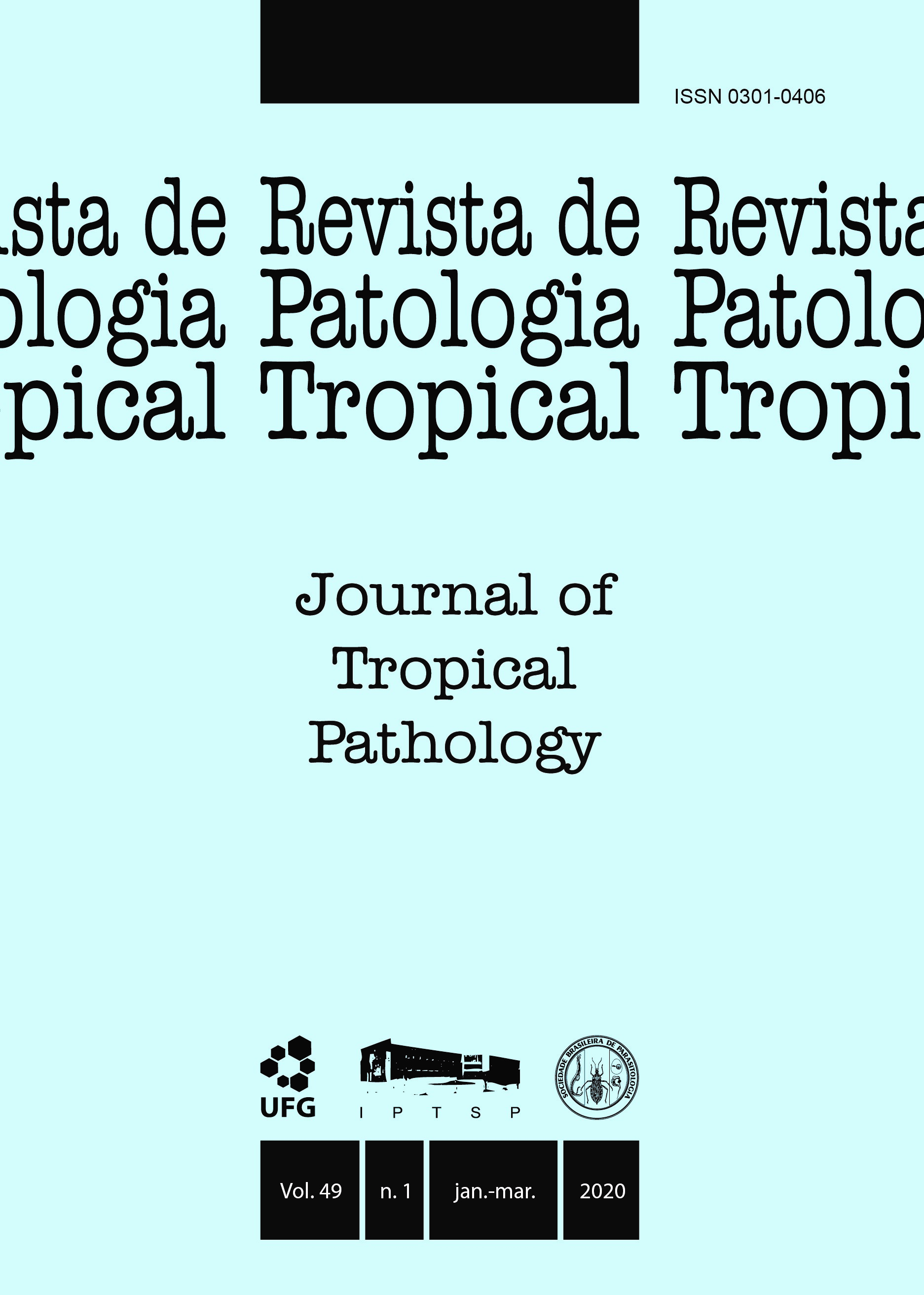Bacteroides fragilis INDUCES CONFORMATIONAL ALTERATIONS IN Trichomonas vaginalis ULTRASTRUCTURE IN AN IN VITRO INTERACTION
DOI:
https://doi.org/10.5216/rpt.v49i1.62008Abstract
Bacteroides genus are commonly found on mucous membranes, including the female genital tract, acting as agents for several site infections. Anaerobic infections are usually polymicrobial and endogenous. Trichomonas vaginalis, the trichomoniasis etiologic agent, is a facultative anaerobic flagellated parasite spread worldwide. The purpose of this study was to explore the association between vaginal bacteria and T. vaginalis, as well as to understand factors that may favour the infection of T. vaginalis. We have, therefore, used T. vaginalis trophozoites and the species Bacteroides fragilis, which is considered the most important in its genus, once
it is the most commonly isolated bacteria from endogenous infections. The parasite-bacteria interaction was performed in different proportions in periods varying from 1 to 12 hours applying viability tests. The data were analyzed to compare the parasite viability in vitro in the presence and absence of B. fragilis. The results indicate that in the 1:100 proportion postinteraction analysis, ultrastructural alterations were noticeable after 6 hours. After 8 hours, T. vaginalis viability decreased, and after 12 hours of interaction no viable trophozoites were found. These data suggest that the parasite can deal with B. fragilis in short interaction periods. However, in longer interaction periods the trophozoites collapse, indicating that B. fragilis may produce toxic metabolites against T. vaginalis activity.
KEY WORDS: Bacteroides fragilis; Trichomonas vaginalis; parasite-bacteria interaction; parasite
environment; electron microscopy; gynecologic infections.
Downloads
Downloads
Published
How to Cite
Issue
Section
License
The manuscript submission must be accompanied by a letter signed by all authors stating the full name and email address, confirming that the material has not been published or is under consideration for publication elsewhere, and agreeing to transfer copyright in all media and formats for Journal of Tropical Pathology. The authors will not be paid for published articles. They are solely responsible for the content of those articles, even if the Editor holds the right to adjust them to the norms of the journal.
The reviewers will not be paid for the peer review process.

